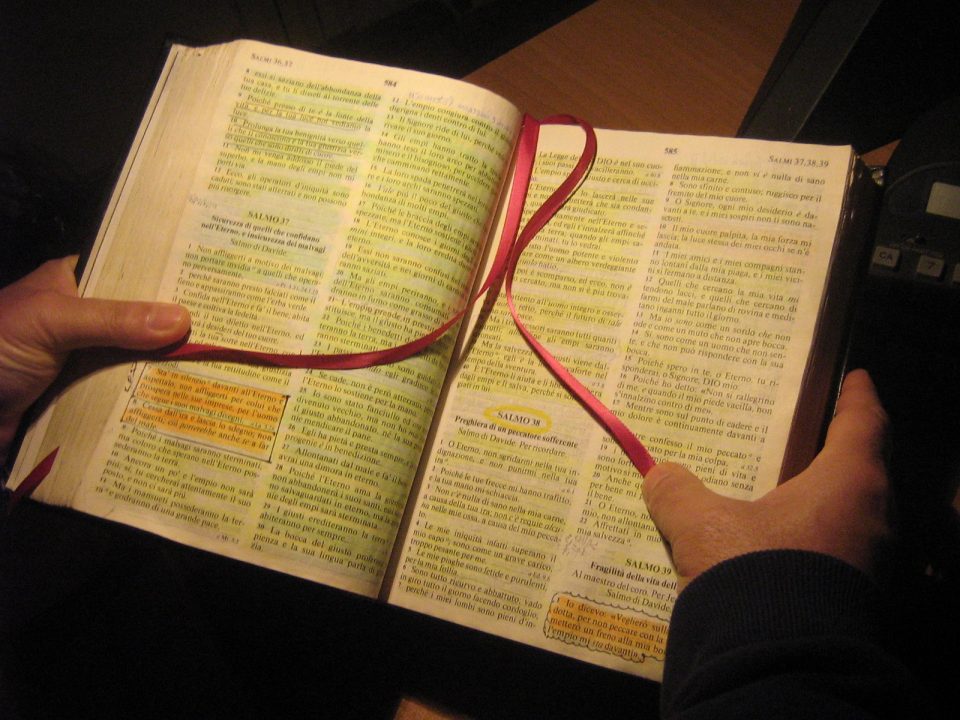What is the definition of wicked in the Bible?

The word "wicked" or "wickedness" appears throughout the Bible, but what does it mean? And why, many people ask, does God allow evil?
The International Bible Encyclopedia (ISBE) provides this definition of wicked according to the Bible:
“The state of being evil; a mental contempt for justice, justice, truth, honor, virtue; evil in thought and in life; depravity; sin; crime. "
Although the word evil appears 119 times in the 1611 King James Bible, it is a term rarely heard today and appears only 61 times in the standard English version, published in 2001. ESV simply makes use of synonyms in several places.
The use of "wicked" to describe fairy tale witches has devalued his seriousness, but in the Bible the term was a heinous accusation. In fact, being evil sometimes brought God's curse on people.
When wickedness led to death
After man's fall in the Garden of Eden, it didn't take long for sin and wickedness to spread all over the earth. Centuries before the Ten Commandments, humanity invented ways to offend God:
And God saw that man's wickedness was great on earth and that every imagination of his heart's thoughts was only evil continuously. (Genesis 6: 5, KJV)
Not only had people become bad, but their nature was always bad. God was so saddened by the situation that he decided to wipe out all living things on the planet - with eight exceptions - Noah and his family. Scripture calls irreproachable Noah and says that he walked with God.
The only description that Genesis gives of the wickedness of humanity is that the earth was "full of violence". The world had become corrupt. The Flood destroyed everyone except Noah, his wife, their three children and their wives. They were left to repopulate the earth.
Centuries later, wickedness again drew God's wrath. Although Genesis does not use "wickedness" to describe the city of Sodom, Abraham asks God not to destroy the righteous with the "wicked". Scholars have long speculated that the city's sins concerned sexual immorality because a crowd tried to rape two male angels that Lot was repairing in his home.
Then the Lord rained sulfur and fire out of heaven upon Sodom and Gomorrah; And he overturned those cities, the whole plain and all the inhabitants of the cities and what grew on the ground. (Genesis 19: 24-25, KJV)
God also affected several people who died in the Old Testament: Lot's wife; Er, Onan, Abihu and Nadab, Uzzah, Nabal and Jeroboam. In the New Testament, Ananias and Sapphira and Herod Agrippa died quickly by the hand of God. All were evil, according to the ISBE definition above.
How wickedness began
The scriptures teach that sin began with man's disobedience in the Garden of Eden. With a choice, Eve, then Adam, took his own path instead of that of God. That model has continued over the centuries. This original sin, inherited from one generation to the next, has infected every human being ever born.
In the Bible, wickedness is associated with worship of pagan gods, sexual immorality, oppression of the poor and cruelty in war. Although Scripture teaches that every person is a sinner, few today call themselves wicked. Evil, or its modern equivalent, evil tends to be associated with mass murderers, serial rapists, child molesters and drug dealers - in comparison, many believe they are virtuous.
But Jesus Christ taught differently. In his Sermon on the Mount, he equated bad thoughts and intentions with acts:
You have heard it said to them in the old days, don't kill; and whoever kills will be in danger of judgment: but I tell you that anyone who is angry with his brother without a cause will be in danger of judgment; and whoever says to his brother, Raca, will be in danger of the council: but whoever says, foolish, will be in danger of hellfire. (Matthew 5: 21-22, KJV)
Jesus demands that we keep every commandment, from the greatest to the least. It sets an impossible standard for humans to meet:
So be perfect, just as your Father who is in heaven is perfect. (Matthew 5:48, KJV)
God's response to wickedness
The opposite of evil is justice. But as Paul points out, "As it is written, there is no one right, no, not even one". (Romans 3:10, KJV)
Human beings are completely lost in their sin, unable to save themselves. The only answer to wickedness must come from God.
But how can a loving God be both merciful and righteous? How can he forgive sinners for satisfying his perfect mercy and punishing wickedness for satisfying his perfect justice?
The answer was God's plan of salvation, the sacrifice of his only Son, Jesus Christ, on the cross for the sins of the world. Only a sinless man could qualify as such a sacrifice; Jesus was the only sinless man. He took punishment for the wickedness of all mankind. God the Father has shown that Jesus has approved the payment by raising him from the dead.
However, in his perfect love, God does not force anyone to follow him. The scriptures teach that only those who receive his gift of salvation by trusting in Christ as the Savior will go to heaven. When they believe in Jesus, his justice is attributed to them and God does not see them as evil, but saints. Christians do not stop sinning, but their sins are forgiven, past, present and future, because of Jesus.
Jesus has warned many times that people who reject God's grace go to hell when they die. Their wickedness is punished. Sin is not ignored; it is paid for the Calvary Cross or for those who do not repent in hell.
The good news, according to the gospel, is that God's forgiveness is available to everyone. God wants all people to come to him. The consequences of wickedness are impossible for humans to avoid, but with God anything is possible.